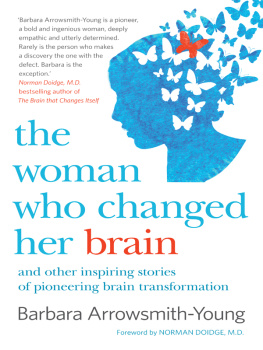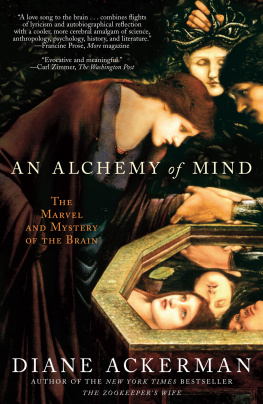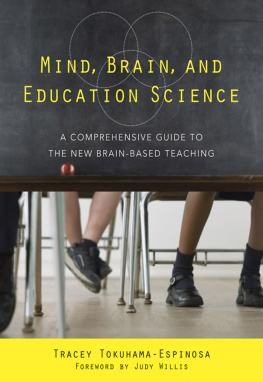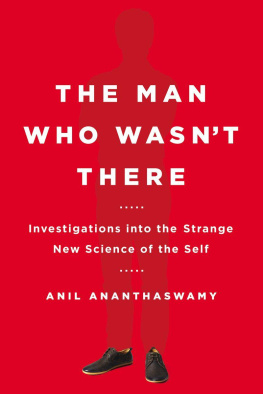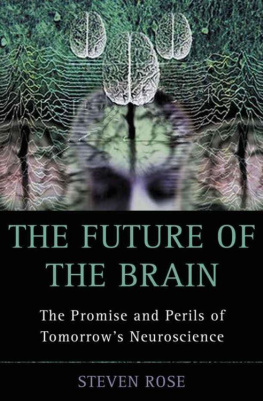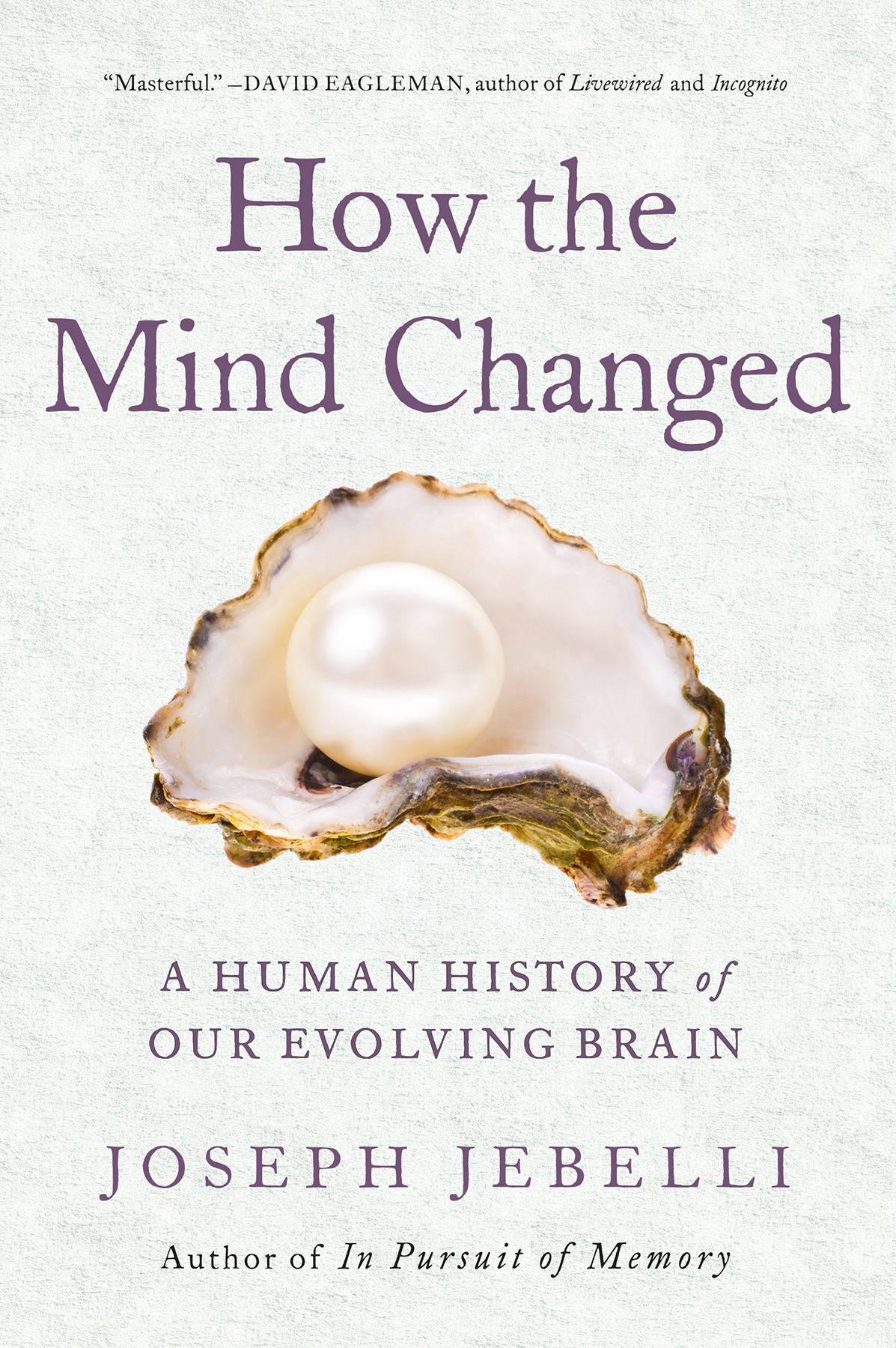Our minds are changing. They have been changing for nearly 7 million years. What these changes were, how they affect us today, and where they may lead us in the future is the subject of this book.
When we think of minds changing we usually think of psychological changes that affect our moods and outlook. Or neurological changes following a head injury or during an illness. But the changes I am interested in run much deeper. They span the evolutionary history of our early human ancestors and shape every aspect of who we are our emotions, our memories, our languages, our intelligence and, indeed, the very fabric of our cultures and societies. It might not feel like it, but we are all heirs to millions of years of brain evolution: countless trial-and-error experiments in our minds relationship with the natural world. As a result, we are cleverer and more interconnected than our forebears ever imagined.
We all intuitively understand that the brain is the most important organ in the body. We use it to think, feel, decide, act, move, and control our breathing and heart rate. We could lose our limbs and other organs yet think and feel as if nothing had happened. But if we so much as lost a piece of brain tissue the size of a grain of sand, our personality and behaviour could alter dramatically. Like fingerprints, brains are unique in each individual. The brain is a dancer and a poet, a teacher and a human rights campaigner. The brain is how we construct reality or engage in fantasy. The brain defines us as humans and distinguishes us from other animals. It is also what we most desire to enhance with future technology.
For as long as I can remember Ive been fascinated by the brain. When I was a child, I routinely hassled my parents for the newsagents shiny new copy of New Scientist. Sometimes I got lucky, and would take the treasured item to a quiet spot in the attic, crawl into the little wooden nook beneath the skylight, flick the pages to the first neuroscience article I could find, and stare in wonderment at the secrets it revealed. I didnt really understand them, of course, but I was transfixed by their endless riddles, their striking images, their unapologetic ambition.
The obsession crystallised in the final year of my undergraduate degree. There was a moment in one of my first lectures on action potentials electrical impulses in the brain when I asked my professor, So everything that I am, all my thoughts and feelings, all the things I see and hear and touch, theyre all just neurons firing these action potentials? Yes, he said. Its incredible, but yes. I was dumbstruck. It was the first time I connected my experience of the world with the three pounds of matter floating inside my head. Four years later, I started publishing neuroscience articles of my own, tinkering with neurons and synapses in the laboratory, finally satisfying the cravings of my brain-obsessed youth.
As a neuroscientist, I think about the brain pretty much all the time. For more than a decade I have tried to discover, within my specific area of research, a small part of the puzzle of how individual neurons function how the 85 billion cells in my brain allow me to perceive pleasure and pain, or remember the thousands of faces from my past. But throughout my research, a basic question has lingered at the forefront of my mind. Why have we ended up with the brains we have?
A hallowed list of explorers, philosophers, scientists and writers including Charles Darwin, Alfred Russel Wallace, Stephen Jay Gould and Jared Diamond have attempted to capture the wonder of human evolution. The humanist Julian Huxley wrote that evolution is the most powerful and the most comprehensive idea that has ever arisen on earth. Nietzsche, Russell, Popper and Chomsky have all pondered the theorys wider significance. Nothing in biology makes sense, said the Russian geneticist Theodosius Dobzhansky, except in the light of evolution.
When Richard Dawkins called evolution the greatest show on earth, he was almost right. Hidden within, like the pearl inside an oyster, is something far more extraordinary: an evolving, changing mind. No other life form on the planet has generated a brain like ours a brain spawning, to take but a handful of examples, ancient Greek philosophy and the music of Queen, Caravaggios art, 7,000 living languages, and the cultural and scientific accomplishments of the Persian Empire. To study the brain is to study the essence of what makes us human. The evolution of the human brain is unique in that it makes substantial leaps forward. Its now thought this is because the brain relies on social changes that are adaptive and selective a process scholars call cultural evolution. In this way, the human brain is an on-going project and the only brain on earth shaping its own evolution.
Understanding the history of the human brain helps us better understand our brains today. It allows us to make sense of our brains daily functions, to explain why we love, feel joy, daydream, sleep, and think about thinking. This evolution isnt all positive, of course. By connecting our past with our present we also learn why we fight, feel jealous, deceive and hate. But even that understanding is important. Today, with all our digital technology and earthly distractions, we often lose sight of why we think the things we think. I want to change that. I believe that by understanding our long family tree of brains, we can change our habits and make better decisions in life. Such an understanding can provide us with important insights into human behaviour and modern society, allowing us to put aside our differences and come together to celebrate our shared evolutionary past.
There are many ways of telling the brains story, with scholars from almost all scientific disciplines weighing in. There are accounts of the brain from anatomists, anthropologists, archaeologists, geneticists, genomicists, primatologists, psychologists, zoologists and, most intimately, from individuals who share their stories of the way their brain affects their lives. The history you hold in your hands will touch on all these fields, but like all histories is selective in parts. Natural histories are at the mercy of scientific breakthroughs, and the speed of these breakthroughs is accelerating more than at any time in the history of science. The more we investigate and this is what I love about science the more we uncover what we dont know, and this spurs us on to ever greater discoveries.



